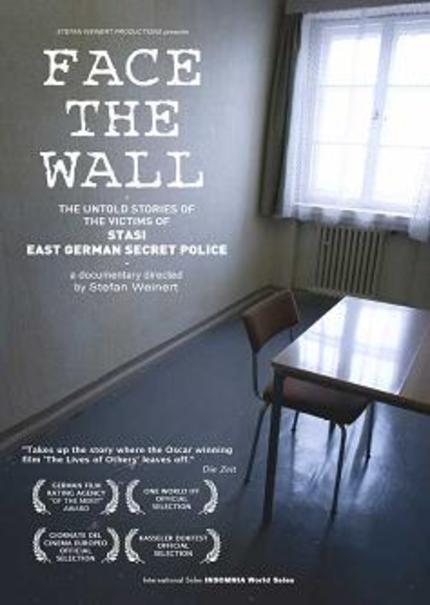LIFF 2010: FACE THE WALL (GESICHT ZUR WAND) review

What do you expect to find in a historical documentary? History, surely? Stephan Weinert's Face The Wall is a record of a group of people selected from the thousands unlucky enough to be caught and jailed for attempting to escape East Germany prior to 1989. It's simply, briskly shot without any unnecessary frills, and features some eloquent, thoughtful and sometimes very moving testimony.
But there's an almost complete lack of anything to establish context, something that feels suspiciously like a mistake. Even when you know what the Berlin Wall was and what it signified, Face The Wall comes across as ninety minutes of talking heads whose behaviour - despite their obvious psychic wounds - swings worryingly close to seeming naivete.
Weinert's subjects were all perfectly normal people at the time - farmer, schoolteacher, student and the like - though their experiences at the hands of the GDR's machineries of state mean they're clearly no longer quite the same. Two are unable to hold down a job, still undergoing therapy and counselling, with one confessing ruefully he can't stand to be in confined spaces for more than short periods of time.
They seem part shell-shocked, part haunted by survivor's guilt, struggling to deal with the concept that such a traumatic series of events hasn't left any visible scars others can relate to. The schoolteacher discusses her time in a women's prison where someone who broke the rules and made the screws look bad ended up beaten and raped by lifers in league with the Stasi. The young gay man (while he's not remotely stereotyped, his experiences are clearly tied to his sexuality) recalls hearing the screams as other convicts slowly went mad from constant sleep deprivation.
They know in some sense they'll never be all right, and that those things which can theoretically be returned to them are probably going to be a long time coming. Weinert follows the farmer (who had his property seized) around the fields he used to work, looking through the fence at the farm buildings, mostly now empty shells.
Obviously no-one could possibly begrudge these people their emotions - many of their monologues to camera carry a thread of bitterness at what seems like equal parts betrayal (none were particularly radical or overtly politicised) and bureaucratic lunacy. Several describe the constant need to self-censor, to avoid discussing even something as innocuous as a television broadcast from across the wall, in case someone might take it as a politically loaded statement.
The thing is all of these anecdotes are very intimate, perhaps too much so. Few of them give any real picture of the world beyond the day-to-day lives of the interviewees, or offer any justification for why they would think in such mundane, insular terms. There are mentions of how their growing frustration drove them to flee, but few concrete details beyond what each of them think needs mentioning. At times this leaves them looking as if their imprisonment came out of the blue.
Admittedly it's difficult to establish how much of their perspective is down to their subsequent years of freedom. Either way, their disbelief brings to mind the stereotype of the tourist taken prisoner by Evil Foreigners who shouts 'But I'm an American citizen!' like someone waving a crucifix. Not having suffered as they clearly have, it's hugely difficult to judge, but it's impossible to completely shake off the idea that asking how can this be happening when you lived in a repressive communist regime leaves you looking like an innocent abroad. Weinert offers nothing of their situation at the time to mitigate this, merely letting the camera keep rolling.
The climax of this comes with the revelation the young gay man not only looked up the records the Stasi kept on him, he even met one of the guards who oversaw his imprisonment and demanded an apology. Unsurprisingly he didn't get one. It's a beautifully paced little snippet of footage that's both mesmerising and maddeningly obtuse. The kneejerk reaction his speech prompts is to ask why on earth he would expect contrition from his interrogator - and Weinert simply doesn't give the viewer anything with which to put together an answer, be it the simple human thing to do or the end result of his trauma or the historical context or anything else.
It bears restating Face The Wall is a German production, presumably made for a German audience first and foremost. There's definite worth in what Weinert's filmed - one interviewee breaks down on camera, recalling the moment he finally reached West Germany, and anyone who can stay dry-eyed at that point has to be made of stone. But the quote from Hegel which closes the movie ("What experience and history teaches us is that people and governments have never learned anything from history") suggests an attempt to look at the bigger picture. Seen in that light, Face The Wall can't help but come across as something of a failure, and proves very difficult to recommend.
(Face the Wall was screened as part of the 24th Leeds International Film Festival.)







